The Way of the Dragon (1972)
Directed by: Bruce Lee
Written by: Bruce Lee
Starring: Bruce Lee, Chuck Norris, Nora Miao, Ping Au Wei
AKA MENT LONG GUO JIANG, THE RETURN OF THE DRAGON
Hong Kong
AVAILABLE ON BLU-RAY AND DVD
RUNNING TIME: 96 min/90 min
REVIEWED BY: Dr Lenera, Official HCF Critic
In Rome, Chen Ching-hua and her uncle Wang experience trouble with their restaurant from a mob boss who wants their property. When Chen refuses to sell, the mob boss sends gangsters to scare away customers. Appealing to an uncle in Hong Kong, the person the disappointed Chen meets at the airport is Tang Lung, a martial artist who seems awkward and out of place in this foreign city. Before long, thugs appear at the restaurant and chase off the customers while Tang is in the toilet. Angered by Tang’s poor timing, the staff question his skill and the usefulness of his style. Later, the gangsters return to harass more customers, but this time Tang single-handedly defeats the thugs, though Wang warns them that the gangsters will now seek revenge and that this victory could make the situation worse….
I wasn’t impressed much by The Way Of The Dragon, originally called The Return Of The Dragon internationally because it came out after Enter The Dragon outside of Asia, when I first saw it, though much of that could be because of the fact that the UK video had around six minutes of its martial arts action removed. In any case, while I still probably stick on Enter The Dragon more often for entertainment purposes, The Way Of The Dragon, a film that has inspired Road House, Rumble In The Bronx and many others, has grown in my estimation with successive viewings and I do now think it may be Bruce Lee’s best work even if it lacks anything near the gloss of a Hollywood production. It’s certainly his most personal and even philosophical, Lee’s unorthodox [at least for the time] ideas about martial arts being presented with strength and clarity. As a film it’s undeniably slightly odd, being basically a ‘fish out of water’ comedy for much of the first third and Lee not afraid of having his character come across as goofy, while the device of having English being substituted for Italian does take some getting used to, though true to form the film gets darker as it goes along and this one doesn’t even want you to cheer at the end, instead adopting a tone of restrained poignancy. Of course the fights are fabulous; many modern viewers may find them a bit slow and simplistic, but that’s because they emphasise pure, deadly skill with no messing around.
Lee was intended to play the lead role in Lo Wei’s Slaughter In San Francisco, which was made without him but didn’t end up getting a release until 1981, but wanted to be shot of the writer/director of The Big Boss and Fist Of Fury with whom he had constantly argued, and to do more of his own thing, directing, writing,
co-producing and choreographing his next film, which was originally called Enter The Dragon until Lee decided to save the name for his American breakout movie. He wanted Joe Lewis to play Colt, but they’d fallen out so Lee recruited his frequent training partner Chuck Norris instead, plus students Bob Wall and Whang Ing-Sik. Lee was still being challenged and one guy bragged in an Italian newspaper that Lee, who was actually tired of all these ‘fights’ which would usually last just a second or two, was scared of him. Lee seriously injured him in a second then paid for him to be healed in Japan. This was the first Hong Kong film partly shot in the West, though most of the cast and crew didn’t have passports or working visas which meant they could only work in Rome for a maximum of three weeks, while filming around the Colosseum was forbidden so the few scenes filmed there were quickly shot without the knowledge of the authorities. This one was even more successful but it became the most mutilated of Lee’s films. The US version, cut by four minutes, removed some of the early comic material [most of the bits described in the next paragraph], while the UK version cut bits out of every single fight, losing four minutes – which became six when the video lost the nunchuku footage as well. Lee had intended to remake it set in San Francisco for the US market.
After the best titles of any Lee film – a golden dragon and wooden oar men rowing in a blue sea with white lines in the manner of an old Chinese painting – we open with a close-up of our hero’s face, which is quite lengthy until the camera pulls back to reveal him waiting for somebody at Rome Airport and some people staring at him for no apparent reason except to give us a feeling of how Tang, a guy from the slums of Hong Kong, must feel in this vibrant city. The next few scenes are rather funny and make one wonder if Lee would have gone even more for comedy in later films, at the expense of martial arts, if he’d lived passed 33. Tang tries to tell a kid he’s hungry but scares him off, orders the wrong food at a restaurant, and is accidently picked up by a prostitute! He even apologises to a bad guy for bumping into him whilst coming out of the restaurant toilet [and he doesn’t even know how modern toilets work], not realising what has just happened elsewhere. His character’s naivety is perhaps overdone but Lee plays this ‘fish out of water’ stuff so well. As with previous Lee characters, Tang is certainly not perfect. He has a narrow minded and even slightly narcissistic streak, and has little respect for history nor open spaces. “Our slum is full of these wrecks” he says to Chen looking at some Roman ruins, and, upon finding himself in a park: “Such a big place is waste. In Hong Kong I would build a skyscraper and collect rent”. Chen initially thinks he’s just a country bumpkin, but then clearly falls for this guy – her half-smile during Tang’s first fight is lovely – but he’s either just too ignorant or too standoffish to respond.
It’s around half an hour before Chen goes into action, and we are given two instances when we think we’re going to see something but don’t. The initial fights have more comedic touches than before, these thugs lacking even much of the menace of the yobs in The Big Boss and frequently behave dumbly [one of them even picks up a nunchuku and whacks himself in the face with it] though Lee’s double nunchuku scene is still astounding to watch. We also see him do a lot more warm-ups. The tone gradually gets more serious as the stakes are raised and the villains bring in some fighters from abroad to destroy Chen, plus a really surprising plot twist involving one character which I used to consider unnecessary but really adds an element of futility to things that is consistent with the previous two films. Maybe one should ‘give in’ some times? Maybe the ‘secret’ bad guy has a point? After Chen has defeated or killed his opponents, we have a rare example of an English dub being more meaningful than the original language – at least as subtitled. The subtitles on the Cantonese version read the last line of dialogue as: “In this world of guns and knives, Tang Lung is respected wherever he goes”, which is fine, but I much prefer the English dub of the line which is: “In this world of guns and knives, wherever Tang Lung may go to, he will always travel alone”. The latter enhances the feeling of sadness at the end of the film without overdoing it.
Lee often liked to show himself wiping the floor with his opponents, and Lee’s brawls with students Whang Ing-Sik and Bob Wall are perhaps a little two one-sided in that Chen never seems in danger. But the Colloseum duel with Chuck Norris [sometimes intercut with shots of the local cats!] remains a fight to study. It seems to be a letdown for some, with ‘Colt’ only having the upper hand in the first third, and there’s nothing flashy about it; it’s all single minded brutality where you feel every kick and punch. Lee emphasises the importance of patience – after Tang starts bouncing on his feet, he adopts a largely defensive attitude, and then wears down Chuck by dodging his attacks and kicking his lower legs – and presents perhaps the most important idea of his jeet kune do martial art – to not get stuck in one fighting style, though when Lee tells of the importance of adapting, he’s probably referring just as much to life in general. And it’s interesting that Lee’s character here treats his opponent with respect. He finally succeeds in stunning his right arm and left leg, but he keeps on coming, and Tang regretfully has to kill him. Then he covers his body with his shirt, lays his black belt over him, says a silent prayer and later visits his grave in the cemetery [well, I assume it’s his, it could be one of the killed waiters]. The actual Western-style build up to the fight is almost as memorable, as Tang searches for his opponent all over the Colloseum while Ah Quen’s distorted voice taunts him. The character of Ah Quen by the way is as gross a gay stereotype as you can find, though he’s so ridiculously over the top that I can’t take it seriously!
Lee overall acquits himself pretty well as director. There’s one very well handled suspense scene where a sniper is taking aim at Tang and Chen while the sounds of nearby firecrackers get louder and scare Chen. Lee was the first Hong Kong director to view rushes in colour so he could match studio and location footage and it’s surprisingly well done – just check out the back projected shot of part of the real Colloseum during the final fight, it’s almost seamless. Nora Miao is simply wonderful in this film, as her character goes from disappointment to incredulity to unrequited love. It’s a shame that she never became the huge star she deserved to be. Norris gets an amusing introduction where his groin walks into the camera. One disappointment is Joseph Koo’s score: his main theme is fine and even works okay as a comedy tune, but little else is memorable and he even resorts to excerpts from Ennio Morricone’s score from Once Upon A Time In The West at times [though this kind of thing was common in Hong Kong films of the time]. Overall though it’s really quite sad watching this film, because it shows so many signs of what Lee could have gone to do, the seeds of further, more diverse flowerings of his talent.
Rating: 










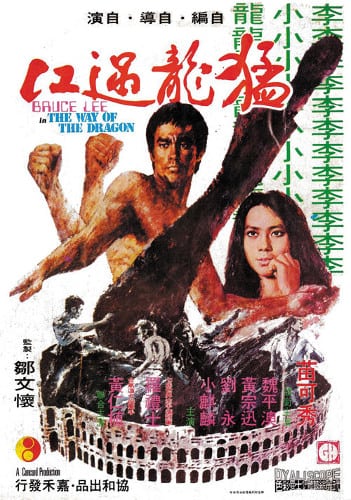
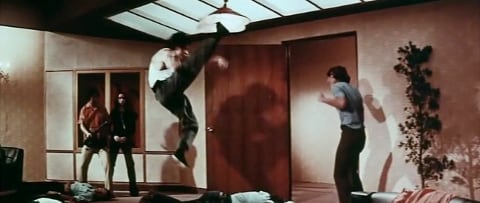
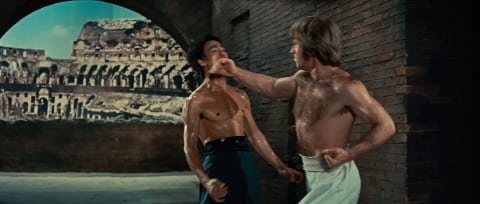

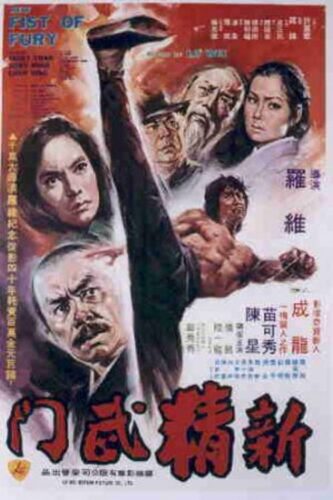
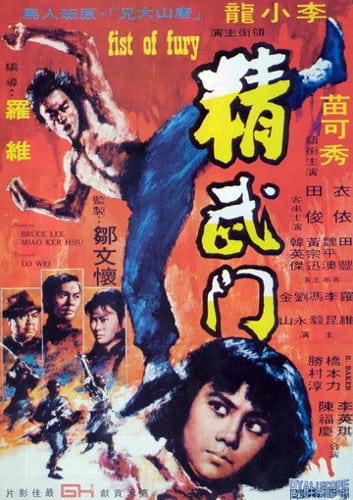
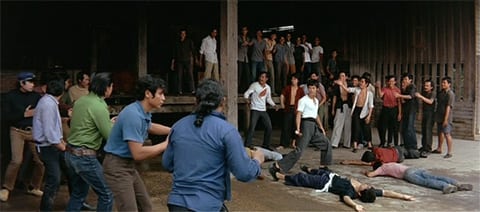
Be the first to comment